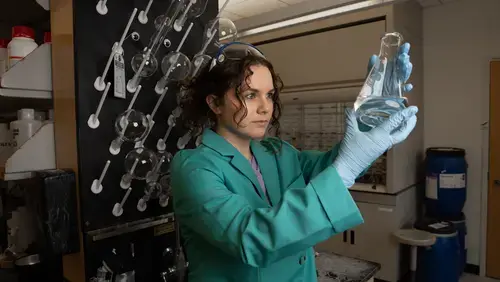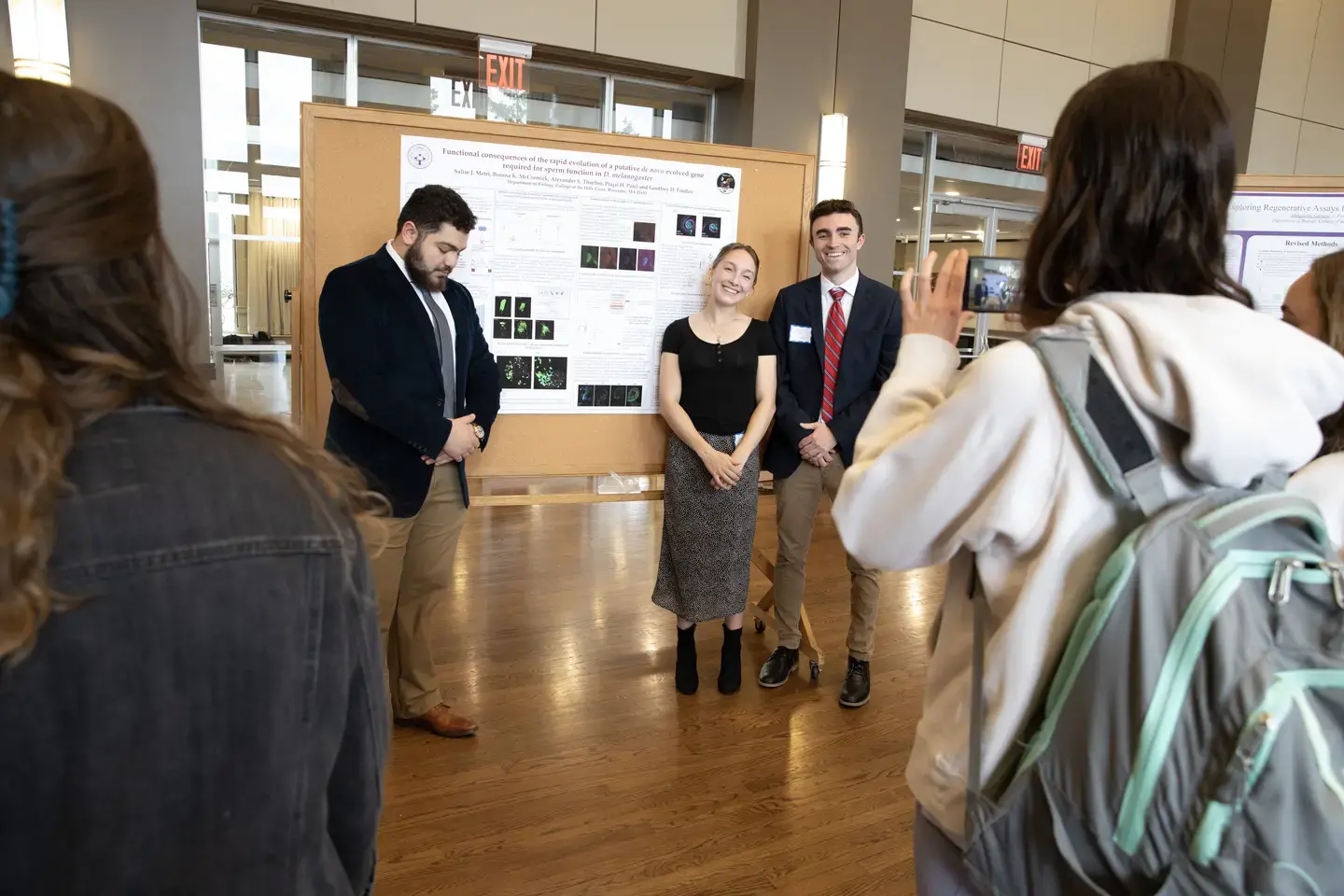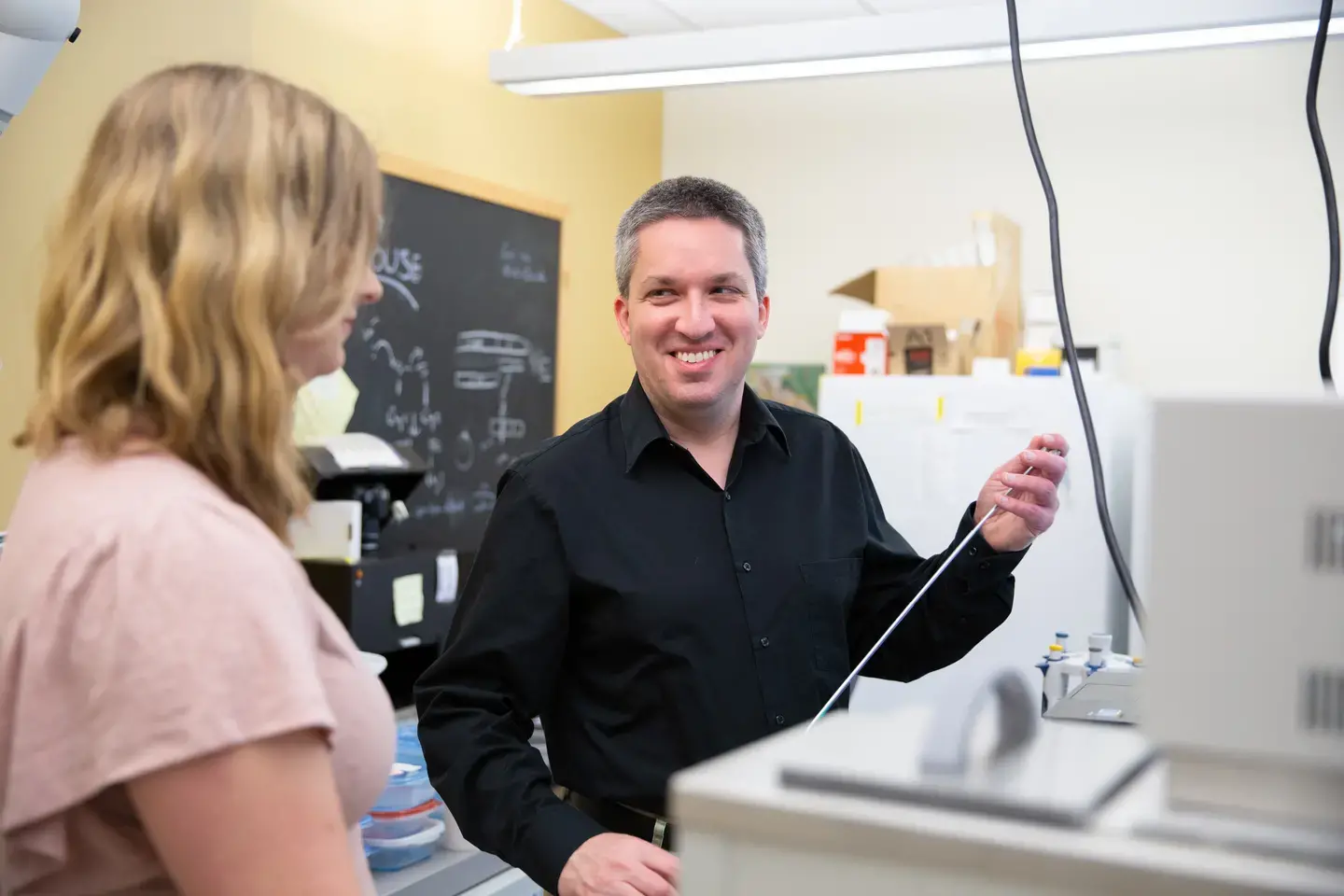Entrepreneurship, Technology and Innovation Graduate Opportunity
This graduate opportunity allows Holy Cross students a preferred admissions opportunity into Notre Dame’s ESTEEM Graduate Program in Entrepreneurship, Technology and Innovation.

Our formula for success has led the chemistry department to produce among the nation’s highest number of chemistry graduates and is a top baccalaureate origin for Ph.D.s in chemistry.
While studying Chemistry at Holy Cross, students will be able to:
Required Courses:
Two of the following three courses must be taken:
Students must also complete one elective listed as a CHEM course. Department offers electives on a rotating basis. Research in the chemistry department cannot be used to fulfill this requirement.
Examples include:
Chemistry majors must also complete the following courses from outside of the Chemistry department:
*These classes have a lab component that must be taken as an overload.
Students with AP credit in Chemistry do not receive credit toward the minimum number of courses required by the major or advanced standing in the Chemistry curriculum. Medical and allied health programs generally do not accept AP credit for basic sciences and students pursuing these opportunities should consider taking CHEM 181. Non-major students with AP Chemistry scores of 4 or 5 receive natural science common credit.
Chemistry (ACS certified major)
Required Courses:
Required Courses:
Several research courses are available to students, by permission from the faculty advisor.
CHEM 389: Involves a commitment to join a research group.
CHEM 390: Involves an original and individual experimental investigation.
CHEM 405/406: Involves an original and individual experimental investigation.
CHEM 407/408: Builds on the investigation started in CHEM 405/406.
CHEM 410: Builds on the experiences gained in previous research and provides an opportunity for more in-depth investigations.
Peer Assisted Learning is a series of free, collaborative twice-weekly review sessions open to all students enrolled in CHEM 181: Atoms & Molecules and CHEM 221: Organic Chemistry I. The sessions are led by Peer Assistance Leaders (PALs), strong chemistry students who have previously taken and succeeded in the course. Your PAL will help answer your questions about course material and challenge you to work with other students to practice learning strategies designed to help you succeed in chemistry.
Students in the Teacher Education Program will meet all chemistry requirements for certification as a secondary or middle school chemistry teacher in Massachusetts (MA Chemistry License), with successful completion of the chemistry major plus one course/project in the history and philosophy of science (e.g., PHIL 271). Students should select a course in biochemistry as one of their electives. Formal application to the Teacher Education Program (TEP) and additional education courses are also required for licensure. Since Massachusetts’ teacher certification requirements continue to evolve, students should work closely with the chemistry department TEP liaison to make sure all state requirements are met.
Students are encouraged to partake in study abroad immersion programs, integrating their studies and experiences abroad.


Research students are often co-authors on research publications and present their results at national conferences. Students publish as co-authors in top peer-reviewed journals and about 20 students a year present their research results at the national meetings of our professional societies.

Since 2001, research projects conducted by Kenneth Mills, associate professor of chemistry, have enjoyed uninterrupted financial support from the National Science Foundation bringing in more than $1.5 million. Mills, whose research integrates student research participation, has mentored more than 50 undergraduate students in his research lab and has produced 25 publications, many of which have included student co-authors and appeared in peer-reviewed publications.